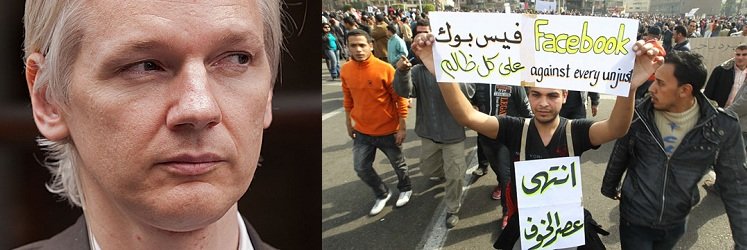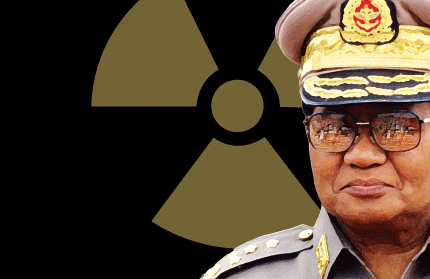58 Years Of US Intervention In Iran

For a detailed list, here’s a timeline of US involvement in Iran from St. Peace:
Continue Reading

For a detailed list, here’s a timeline of US involvement in Iran from St. Peace:
Continue Reading

He had the cops buying drugs on camera. Two plainclothes officers yanked Khaled Said from an Internet café in broad daylight. They dragged him into a dingy apartment lobby and smashed his head against an iron door, the stairs, and the wall. They left him there to die and thought that was that.
Khaled Said’s fate was sadly nothing new. His was simply the most recent and graphic in a long line of Egyptian police atrocities. But then something unusual happened. The grief went viral.

Those of you too young to remember the Cold War may not appreciate the subtleties of the dance involving North and South Korea, China and the United States. It’s a form of communication where superpowers express their positions through the actions of surrogates rather than diplomatic channels. If this is a return to Cold War communication, it would indicate that China used its proxy, North Korea, to send a message of discontent to the United States when they fired an artillery barrage on Yeonpyeong Island.
China’s unhappiness is understandable. After enjoying near double-digit GDP growth every year since 1994, there are signs that the Obama administration is intent on leveling the playing field. With its citizens demanding an ever higher standard of living, a cooling of China’s red-hot economy could galvanize its labor movement and lead to major and sustained political strife. It’s important to understand the dynamics that’s led to the expansion of the Chinese economy in order to appreciate what’s at stake.

The right war is what Barack Obama called Afghanistan in his 2008 campaign. He declared Iraq the wrong war, and that we should never have been there in the first place. In reality, Obama knew that America had to take care of business in Iraq before we could turn our attention elsewhere. First, it’s important to understand how America finds itself in this current situation.
Throughout the early 70s, members of the Organization of the Petroleum Exporting Countries (OPEC) began nationalizing their respective oil industries. In 1968, Britain announced it would withdraw their military from Iran and the Middle East in 1971, and France was still smarting from its defeats in Indochina and Algeria. The American military was stretched to the limit and American public opinion had turned against the war in Vietnam, making further military action by the US unlikely. OPEC nations saw their opportunity.
While agreements had called for OPEC nations to receive as much as 55% of the price of a barrel of oil, no citizen of an OPEC country was allowed to be a director of any of these oil companies, nor were they allowed to see the books. Estimates are American oil companies paid these countries as little as 10%. By 1973, member countries owned as much as 60% of the oil industry in their respective nations, and they were effectively setting their own prices. A barrel of crude nearly quadrupled to over $11.

A five-year investigation by the Democratic Voice of Burma has revealed evidence suggesting the military regime in Myanmar (or Burma) is developing a nuclear weapon. After the defection of Major Sai Thein Win from Myanmar, hundreds of photographs and testimony were disclosed, showing high-level involvement from the Burmese military with the aid of North Korea. The below videos via Al Jazeera go in further depth to the expanding nuclear program:
Part 1